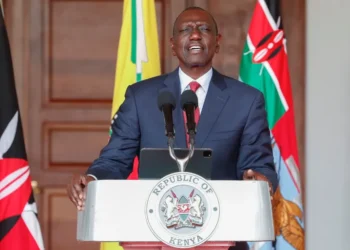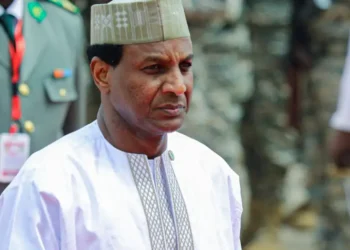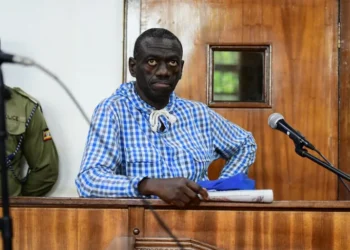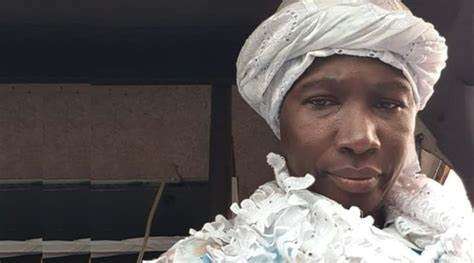Today, a Nigerian court opened hearings on separate challenges filed by the opposition, to contest the incumbent party’s triumph in the country’s presidential election.
The constitutional tribunal heard the opening comments of lawyers for opposition parties, disputing the outcome of the February poll won by Bola Tinubu of the ruling All Progressives Congress, at the Court of Appeal in Abuja.
As the court session began, armed security guards blocked the main access roads and barred a few media and lawyers from entering the premises. Some demonstrators flew Nigerian flags and held posters accusing the electoral process of being flawed.

“I am demonstrating because of the anger and pain I feel as a Nigerian who is not allowed to express and enjoy the resources of the land,” protester James Mike said, accusing the Nigerian political elite of stealing the country’s wealth, its vast mineral and crude oil reserves.
Tinubu was proclaimed winner by Nigeria’s electoral commission in a televised broadcast, after receiving 37% of the votes cast. However, the two main opposition candidates have challenged the outcome, challenged Tinubu’s qualifications and allege the results from the country’s 177,000 polling stations were tampered with.
Analysts and observers have averred the voting on Feb. 25 was essentially an improvement over previous elections in Nigeria, but that delays in downloading results may have allowed data to be tampered with.
Claims Of The Opposition
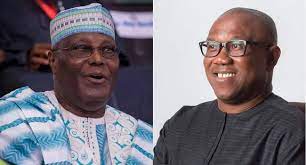
Both second-place finisher Atiku Abubakar of the Peoples’ Democratic Party, and third-place finisher Peter Obi of the Labour Party have filed separate cases, arguing that Nigeria’s electoral body broke the law in declaring the election results.
Peter Obi has stated that, he has proof that he received the majority of votes in the election, while Abubakar has urged the court to disqualify Tinubu, claiming that he possesses a Guinean passport and thus is ineligible to run for president under the Nigerian Constitution.
“We are telling the court that, Tinubu is not qualified, and that, contrary to the law, he did not put the election commission on notice that he has citizenship of another country,” said Paul Ibe, Abubakar’s spokesperson.
In Nigeria, an election can be declared invalid only if it is demonstrated that the national electoral authority violated the law and intervened in ways that could have affected the outcome. The Supreme Court of Nigeria has never overturned a presidential election result in Nigeria, though commentators say this year’s vote is unusual due, to the substantial use of technology in the electoral process.
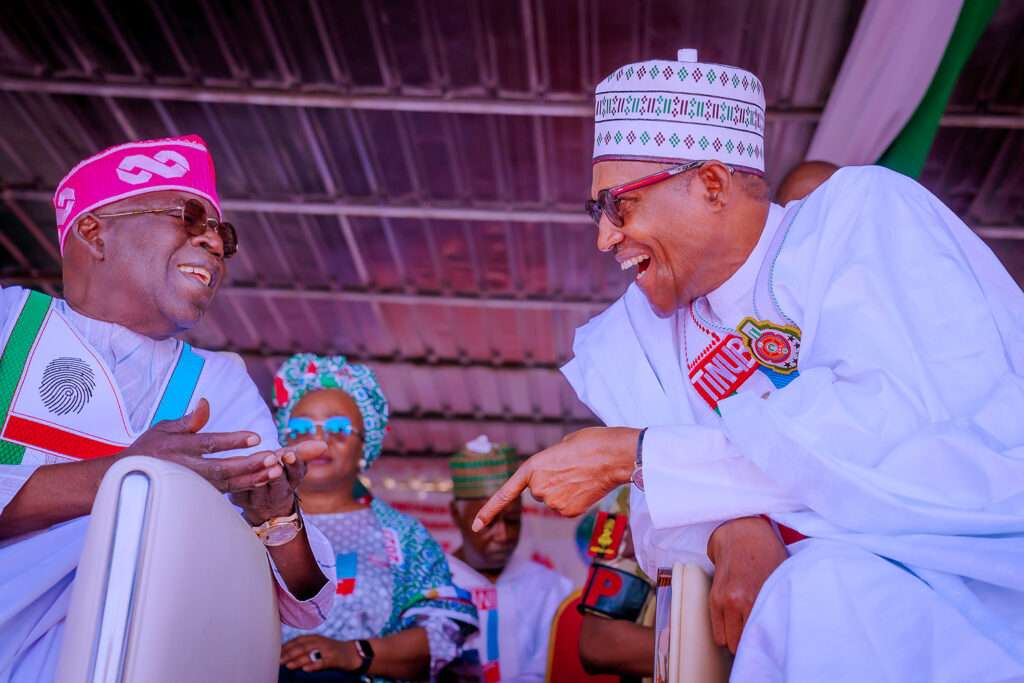
The main opposition party has claimed without evidence that, the ruling party is attempting to tamper with the judicial process, heightening tensions as the country awaits the court’s decision while getting ready for Tinubu’s inauguration as president. The legal challenge, however, is typically a protracted procedure, that is expected to extend months after Tinubu takes over from incumbent President Muhammadu Buhari on May 29.
READ ALSO :Mali’s Constitution Under Threat, Political Groups Voice Out


